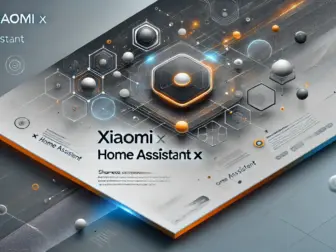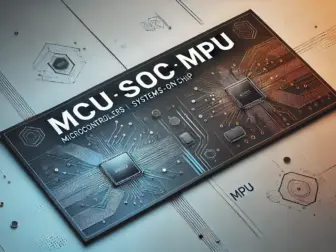Tag - smart Home
Blog, IoT Tools and Platforms, Tuya IoT , October 14, 2025 , BLE, IoT modules, module selection, smart Home, Tuya, Tuya hardware, WiFi, ZigBee
Blog, Edge Computing and Data Analytics , September 28, 2025 , BLE, ESP32, IoT Bridge, IoT Gateway, IR, LoRa, MQTT, OpenMQTTGateway, RF, smart Home
AI and Machine Learning, Blog , August 15, 2025 , AIoT workflow, Dify, Energy Optimization, Home Assistant, Home Assistant automation, Pet Care, smart Home, Smart home automation, smart home energy optimization, Tuya, Tuya smart home integration, Voice Assistant, voice assistant automation, ZedIoT AIoT platform
Blog, IoT Tools and Platforms , December 31, 2024 , Home Assistant, Open Ecosystem, Open Protocols, smart Home, Xiaomi
Blog, IoT Protocols and Interoperability , December 19, 2024 , chip selection, domestic chips, embedded development, Industrial IoT, iot, MCU, MPU, smart Home, SoC
Blog, Industrial Solutions , December 16, 2024 , AI large models, data value, Edge Computing, industrial optimization, industry trends, iot, protocol standards, Smart Healthcare, smart Home, SoC
- 1
- 2
Exploring the Benefits of Smart Home Technology
Smart home technology has revolutionized the way we interact with our living spaces, offering convenience, efficiency, and security like never before. From controlling your lights and thermostat with a simple voice command to monitoring your home from anywhere in the world, the possibilities are endless with smart home devices.
One of the key benefits of smart home technology is the convenience it provides. Imagine being able to adjust your home’s temperature or turn off your lights from the comfort of your couch or even while you’re away from home. With smart home devices, this is no longer a distant dream but a reality. Additionally, smart home technology can help you save time and energy by automating routine tasks such as adjusting your thermostat based on your schedule or even reminding you to take out the trash.
Another major advantage of smart home technology is the increased efficiency it offers. By utilizing sensors and algorithms, smart home devices can learn your habits and preferences, allowing them to optimize energy usage and save you money on your utility bills. For example, a smart thermostat can adjust the temperature of your home based on when you’re home or away, ultimately reducing energy waste and cutting down on costs.
In terms of security, smart home technology provides peace of mind by allowing you to monitor and control your home from anywhere in the world. With security cameras, smart locks, and motion sensors, you can keep a close eye on your property and receive instant alerts in case of any suspicious activity. This added layer of security is invaluable, especially for those who travel frequently or have valuable possessions they want to protect.
Furthermore, smart home technology can also improve the overall quality of life for individuals with disabilities or senior citizens. With voice-controlled assistants and smart devices, those with mobility issues can easily control various aspects of their home without the need for physical exertion. This can lead to increased independence and a greater sense of empowerment for those who may require assistance with everyday tasks.
Overall, the benefits of smart home technology are undeniable. From convenience and efficiency to security and accessibility, smart home devices have the potential to enhance our lives in countless ways. As technology continues to evolve, we can expect even more innovative solutions to further improve our living spaces and make our homes smarter than ever before.







